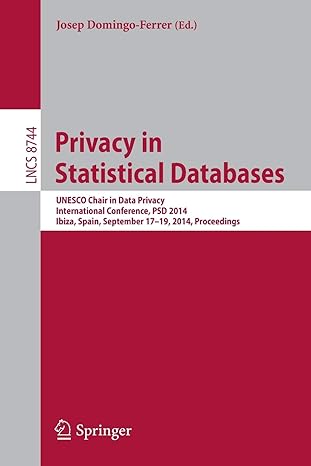Answered step by step
Verified Expert Solution
Question
1 Approved Answer
- Literature Review: Overview of Cloud Computing: Cloud computing offers a modern alternative to managing physical data centres. It allows for the leasing of hardware
Literature Review:
Overview of Cloud Computing:
Cloud computing offers a modern alternative to managing physical data centres. It allows for the leasing of hardware and software as needed, which transforms capital expenses into operational expenses. Cloud environments provide an accessible online portal for users to manage various resources such as compute, storage, network, and applications.
Types of Cloud Models
Public Cloud: All hardware and software are managed by the vendor, reducing the maintenance burden on the user.
Private Cloud: Mimics the public cloud but is hosted within an organizations own datacentre, keeping the maintenance responsibilities inhouse.
Hybrid Cloud: Combines public and private clouds, allowing for flexible hosting of workloads.
Advantages of Cloud Computing:
Reduces the procurement cycle for deploying new hardware from weeks to minutes.
Offers scalability and flexibility in resource management.
Provides cost efficiencies, especially with the ability to scale resources on demand.
How does mobile cloud computing work?
Mobile cloud computing works by seamlessly switching between resources in the cloud environment and on mobile devices to improve the experience of mobile users. Applications running on mobile devices send data requests over the internet to the cloud. Remote servers process the requests and return the appropriate response, which is then displayed to the mobile users. Mobile cloud computing architecture uses four main types of cloudbased resources.
Why is mobile cloud computing important?
Modern customers expect the convenience of accessing a company's website and applications remotely from anywhere and at any time. Organizations use mobile cloud computing applications to meet this expectation efficiently and costeffectively. They run complex workloads on cloud resources so that users are not limited by their device capacity or operating system. Advantages of using mobile cloud computing include the following:
Wider reach
Mobile application developers can reach a large market because MCC is platform independent. Cloudbased mobile apps are serverless and run on any device and operating system. Developers can maintain them centrally and publish updates across all platforms with minimal effort.
Realtime analytics
Cloud apps store data centrally on the same cloud infrastructure. The backend cloud services can integrate multiple data points quickly and communicate with several other applications to provide accurate realtime analytics. Users can securely collect and integrate data from various sources. Internet of Things IoT also enables cloud connected, realtime experiences and communications in mobile apps.
Improved user experience
If they have a strong internet connection, mobile cloud application users can enjoy a seamless application experience across platforms and devices such as desktops, mobiles, and tablets. They can access rich computational resources do not present on their device. If the device is lost or stolen, their data remains backed up to cloud data storage, and they can recover it quickly.
Cost efficiency
Cloud providers offer a payasyougo model so that you pay only for the cloudbased resources that you use. This makes it less costly than purchasing and maintaining your onpremises servers. Additionally, if the cloud apps are for internal use, your organization can permit employees to install the mobile apps on their own devices. They do not have to purchase specific device configurations for all employees.
What are some use cases of mobile cloud computing?
MCC connects mobile phones and tablets with computing resources in the cloud to enhance user experience as well as make it easier to create creative applications for mobile devices.
You can develop mobile cloud applications for any type of use case. The following are common examples of mobile cloud computing.
Interactive experiences
Interactive experiences in media and entertainment use MCC to share information in real time to end users. Example applications include financial tickers, voting, and music streaming apps with offline and online capabilities. Similarly, locationaware features based on enduser realtime location, such as geobased marketing or map searches for places close to the users physical location, require cloud computing.
Social media
Mobile social networking users share and access large data files such as images and videos. Cloud applications have data processing functions so that mobile users can view shared files in real time without overloading their mobile device.
paraphase it the word
Step by Step Solution
There are 3 Steps involved in it
Step: 1

Get Instant Access to Expert-Tailored Solutions
See step-by-step solutions with expert insights and AI powered tools for academic success
Step: 2

Step: 3

Ace Your Homework with AI
Get the answers you need in no time with our AI-driven, step-by-step assistance
Get Started


